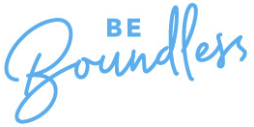A free resource open to anyone is available off the Career Services website called the Passport to Professionalism. This series of modules can help train new staffers on phone and written communication. It’s a series of quick videos, worksheets and reflection exercises you are welcome to incorporate into your training needs with new hires and it can be located here.
Phone Etiquette
Answering the Phone at Work: It is important to understand the specific script expectation for how an organization’s phone should be answered and how messages should be taken/routed. Often times this expectation is relayed from the supervisor.
- The standard is to pick up by the third ring, state the department name, your name to the caller, and ask how you can help.
- An access list of direct lines of others and a notepad should be readily available at all times to connect calls to the right individual.
- Part of assisting any user on a call is being present to what is being relayed. Establish rapport with your caller, so you can ask leading questions that can facilitate how to best identify their needs.
Voice Mails and Returning Calls: People today live by and with their mobile phones. It is important to set up an appropriate voice mail message that clearly states your name and a professional greeting. A turn-off to prospective employers is to discover that someone’s mailbox is full and a voicemail cannot be left or that the voicemail has not been set-up.
A rule of thumb when you receive a voicemail is to listen to the full message before returning the call. If the person has voicemail, specific details of the caller and the subject would be left to allow for a much more informed and appropriate return call.
Along the same lines, if you need to return a call from a number and you don’t have the benefit of a voice mail, prepare your approach for placing the call, similar to the example below:
“ Hi, my name is ______ and I received a call from this number today at approximately _X_ time. I want to check in and see how I can be of assistance, do you know who may have tried to reach me?”
Email Etiquette
Anticipate the emotions, needs and thought process of your reader before the first sentence is written.
- Identify yourself readily in your opening sentence, vs. assuming someone knows you from your email address.
- Keep your message concise, grammatically error-free and get to the point right away without being too curt. Use short paragraphs and bullets to break up the points of your message. If there is a deadline or action you need to relay to the reader, make sure that is clearly seen as a bullet or paragraph on its own without being buried into one chunk of long text with miscellaneous details.
- Pay attention to your subject line. The subject line needs to reflect the key focus of the message and if there are needs, those are requests/reminders…not demands.
Good Example: Staff Meeting Tuesday: Agenda items due/ Poor Example: Read immediately if you want an agenda item added to this week’s meeting
- Avoid abbreviations and emoji’s you may use in casual text conversations, they have no place in professional emails.
- I have a colleague who told me she has never used an emoji for any form of communication. I was stunned, as she is a very dynamic person with a strong social media presence and a very outward facing and prominent role with her organization.
- Her response was that she wanted to ensure her communications are on point and authentic. She did not want to rely on her use of symbols to try and do the job. To her, it was a form of cheating on communication. After hearing her explain it, I have a real appreciation for her perspective.
- Be aware of triggers that are common perceptions in email communication. The use of ALL CAPSin a message is a sign of shouting in an email and should be avoided. Overusing the use of red fonts can also be seen as overbearing. If you want to highlight a deadline, that’s fine but avoid marking a whole paragraph in red.
- Privacy in emails are not to be expected. Writeyour email knowing it can and will likely be shared and digitally stored.
- If an email is quick to anger or annoy you, take a break before you respond. A quick response usually means an escalated response. Pick up the phone or request a face to face meeting to clarify the needs after you give yourself time to digest the emotion first. Seek to understand and remedy vs. escalate.
- Refrain from placing a read receipt on all your communications. This is offensive to the recipient and should only be used sparingly. You are automatically conveying, I don’t trust you and I am covering myself first.
- Don’t copy your boss and/or your recipient’s boss on an email unless you are addressing something on their behalf, it has been requested, or you need their input to clarify something. A constant and consistent practice of copying others in leadership, vs. using the practice sparingly, can cause confusion, mistrust and doubt.
- Signature lines on emails are wonderful tools that guide the recipient to know how to readily associate you and find you via phone, etc. Use them. I love when a student emails me and has a signature line. It shows me from the start they are embracing a role as an emerging professional.
- Refrain from colored/textured backgrounds on your email messages, frilly fonts and lightly colored fonts. It is unprofessional, makes it hard to read, and if it requires being forwarded to others for action, this can further muddy your message.
- No response to an email? Change your tactic. While a timely response is best, let’s face it, some people are not good at staying on top of or responding to email. When you see a theme that email is not working with someone, choose an alternate means of reaching them, such as with a phone call. Don’t keep trying email if it is not working. No boss likes to hear that you were unsuccessful at something because you emailed the other person 10 times and never got a response. That not only reflects poorly on the non-responder, it also shows a lack of resourcefulness with the initiator.
- Find a colleague who you can trust to be your sounding board with tough emails. Let’s face it, tone can often be implied in an email when the sender had no intention of it. When you find yourself facing problems with written communications, entrust a colleague who can be your professional sounding board. For example, I routinely benefit from the following insights to refine my efforts in email communications.
- I need colleagues who will tell me I’m too wordy and I need to be more concise.
- Remind me that I often skip a quick greeting and go straight to stating the concern or need at hand, possibly seeming abrupt when I did not intend to be.
- Help me understand how a question I ask in an email could be perceived in a way I never intended.
We are all a work in progress and having someone you trust who can help you with candid feedback to become your better self in writing and in person, is essential. Perhaps the most important tool of all is helping others know how to effectively communicate with you and what your expectation is for how they are to represent the organization in communication. If we assume these things are known, aren’t we then part of the communication mishap?





